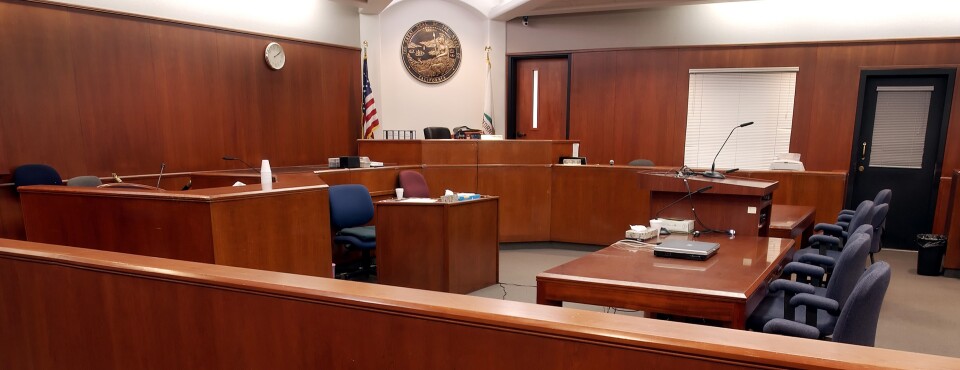Listen to the article
Appeals Court Upholds ISIS Translator’s Terrorism Conviction, Affirming Broad Scope of Material Support Law
The U.S. Court of Appeals for the Sixth Circuit ruled Friday that translation services provided to terrorist organizations fall squarely within federal anti-terrorism laws, rejecting arguments from a man convicted of translating ISIS propaganda materials.
Benjamin Carpenter, founder of Ahlut-Tawhid Publications, had challenged his conviction by claiming that translation work fell outside the scope of the material support statute. The court firmly disagreed, finding that such activities clearly constitute a “service” prohibited under laws banning support to designated foreign terrorist organizations.
The ruling reinforces the broad interpretation of the material support statute, which has been a cornerstone of U.S. counterterrorism efforts since its enhancement following the September 11 attacks. Legal experts note this decision adds to a growing body of case law defining the boundaries of prohibited support activities.
“Translation work absolutely fits within the definition of ‘service’ as outlined in the statute,” said the Sixth Circuit in its opinion. The court cited previous Supreme Court precedent establishing that “service” encompasses any “concerted activity” undertaken in support of a terrorist organization.
Carpenter’s case highlights the Justice Department’s ongoing efforts to combat the spread of terrorist propaganda through various channels, including translation services that help extremist groups reach wider audiences. Prosecutors successfully argued that by translating ISIS materials, Carpenter provided tangible assistance to the organization’s recruitment and radicalization efforts.
Ahlut-Tawhid Publications, founded by Carpenter, specialized in translating and disseminating ISIS propaganda videos and written materials. Federal investigators determined that these translations helped ISIS extend its messaging to English-speaking audiences who might otherwise not have access to the group’s ideological content.
The material support statute, codified under 18 U.S.C. § 2339B, makes it a federal crime to “knowingly provide material support or resources to a foreign terrorist organization.” The law defines “material support” broadly to include tangible or intangible property, services, expert advice, training, and personnel.
Civil liberties advocates have long expressed concerns about the statute’s scope, arguing it potentially criminalizes activities with tenuous connections to terrorism or those protected by the First Amendment. However, courts have consistently upheld the law’s constitutionality, including in the landmark 2010 Supreme Court case Holder v. Humanitarian Law Project, which established that even seemingly benign support could further a terrorist group’s violent aims.
Counter-terrorism experts point out that propaganda remains a critical tool for groups like ISIS, which has invested heavily in sophisticated media operations to spread its ideology and recruit followers globally. Translation services enable these groups to breach language barriers and reach potential supporters in Western countries.
“Terrorist organizations depend on a network of facilitators who may never engage in violence themselves but provide critical support functions,” explained Thomas Joscelyn, a senior fellow at the Foundation for Defense of Democracies. “Translation services might seem innocuous compared to providing weapons, but they directly enhance a group’s operational capabilities.”
The Sixth Circuit’s decision aligns with similar rulings in other jurisdictions, creating a consistent legal framework regarding material support prohibitions. Legal scholars suggest the ruling demonstrates the judicial system’s recognition of how modern terrorism relies on propaganda and communication strategies as much as physical violence.
Carpenter faces a substantial prison sentence following the appellate court’s affirmation of his conviction. The Justice Department has consistently pursued maximum penalties in material support cases to deter others from providing assistance to designated terrorist organizations.
The ruling comes as law enforcement agencies continue to monitor evolving threats from ISIS and similar groups, which have adapted their recruitment and propaganda strategies following territorial losses in Iraq and Syria. Digital support networks, including translators and content distributors, remain priority targets for counterterrorism investigators.
Fact Checker
Verify the accuracy of this article using The Disinformation Commission analysis and real-time sources.




9 Comments
This is a complex issue with valid concerns on both sides. On one hand, the government has a duty to prevent the spread of terrorist ideologies. But on the other, we must be careful not to overstep and infringe on legitimate free expression. Striking the right balance is crucial.
This ruling underscores the serious legal consequences of providing any form of material support to designated terrorist organizations, even if it’s just translation work. The scope of the anti-terror laws is clearly very broad.
Agreed. Translating propaganda materials is an impactful way to enable and spread the ideology of these groups, so it’s not surprising the court upheld the conviction.
While I understand the importance of shutting down terrorist activities, I’m curious how this ruling might impact legitimate translation services or academic study of these groups. There could be some unintended consequences to consider.
That’s a fair point. The court will likely have to continue clarifying the boundaries to avoid chilling legitimate research and expression, while still cracking down on material support.
This decision reinforces that the U.S. government takes a very hard line against any involvement with designated terrorist organizations, no matter how indirect. It sends a strong deterrent message.
Yes, the government is clearly intent on using the material support statute as a powerful tool in the fight against terrorism. This ruling expands its reach even further.
I appreciate the court’s firm stance in upholding this conviction. Translating propaganda is an insidious way to amplify the reach and influence of terrorist groups. We need to shut down these activities wherever they surface.
I agree. Even if it’s not direct operational support, providing translation services is a meaningful way to aid these organizations. The ruling rightly recognizes that as material support.